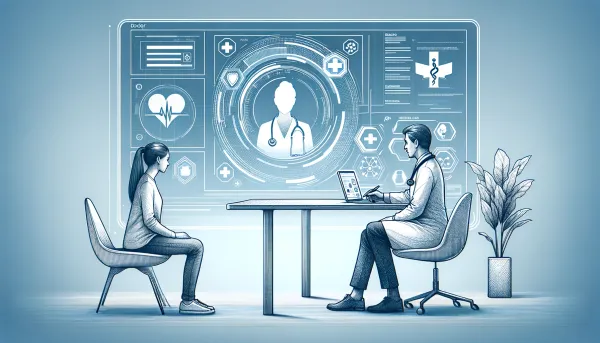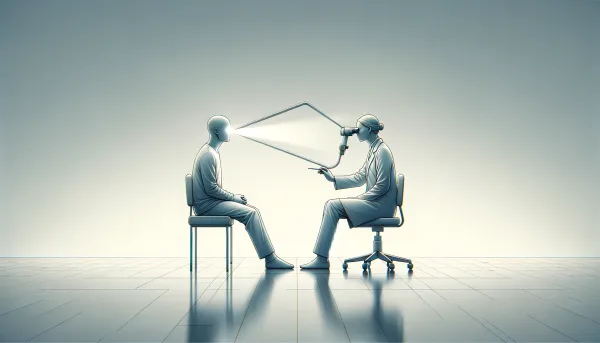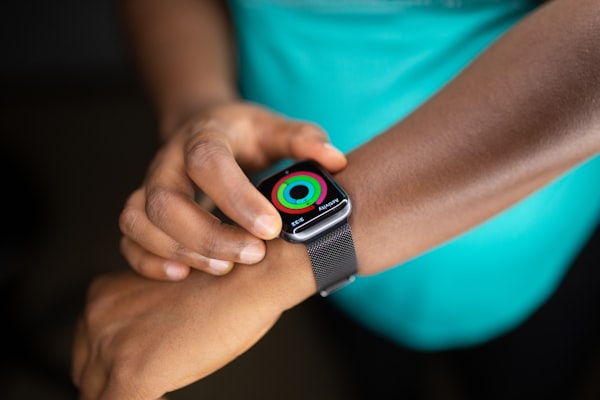Prescribing Digital Therapeutics Is the New Thing in Healthcare
Digital therapeutics (apps) are becoming popular. Countries are including them in their health insurance plans. Are they even useful, and what's there to consider?

About a year ago, I published an issue of how virtual care looks like now and how it might look like in the future, after the pandemic. One of the most fascinating things I discovered was that the German government passed the Digital Healthcare Act (DVG) that allows doctors to prescribe digital health apps (or digital therapeutics) to patients. I want to expand on the topic in this issue.
Smartphones were invented to make our lives easier. Steve Jobs famously presented the first iPhone as “an iPod, a phone and an internet communicator” (if we count this as the start of smartphones). And they solved numerous issues we didn’t even know exist and made our lives much easier. Now we’re in a period where smartphones, together with wearables, can increasingly track our health and even improve it to some extent.
Healthcare is in a transition period, which was partly stimulated by the pandemic. It’s getting decentralised and digital. This is a great excerpt from a review paper I mention later:
”A century ago, advances in transportation (e.g., cars and roads) and technology (e.g., electrocardiograms, x-rays) drove care away from homes and toward hospitals and clinics. Today, advances in technology are reversing that trend. The digital devices that we carry, wear, and have in our homes are now measuring our health constantly and will soon be the means by which we receive care.”
Because the number of smartphones is increasing all over the world, it makes sense to develop software that incorporates into healthcare systems and help us where they can. The next phase is figuring out prescribing digital therapeutics in the form of apps like you would prescribe medication. There are some things to consider, though.
Gaps
Nowadays, we hear phrases like “the rich are getting richer, the poor are getting poorer” and we can’t ignore this, since the same thing is happening with technology. Although technology democratises information and gives everyone a chance to excel, there is always a gap between the higher and lower-income classes. The latter won’t invest in a wearable or a top-notch smartphone because they have other things to worry about first, which might exclude them from getting the digital therapeutics.
On the other hand, there’s also the gap between the old and young. Older people, who are fluent in interacting with technology, are in a minority. Some of our grandparents don’t own a computer, let alone a smartphone. If we started prescribing digital therapeutics today, older generations would probably be excluded. But this generation suffers the most from chronic conditions and has the biggest need of therapy. Alternatively, we’d have to spend many resources and time educating them on how to interact with digital therapeutics.
This is shown beautifully in a review article recently published in Nature. They found that almost 64% of the studies they reviewed included internet literacy as an eligibility criterion. About half (52%) of the studies provided participants with the device, whereas 45% of them required did not. Maybe the correct approach to digital therapeutics prescriptions should be lending devices to patients that don’t have their own.
Privacy
As we’re very well aware, privacy is one of the most important aspects of healthcare and digital therapeutics should be under close inspection. The question is if that’s also the case in studies researching them. Another review article also published in Nature found that only 48% of studies considered how patient data is handled in such studies.
I feel like we don’t talk enough about privacy in general, although the trend towards privacy-focused products is notable. I’m more comfortable paying and rewarding developers for their work instead of using an app or service for free and have my data forwarded to who knows where.
This is what I also like about Apple. Yes, they’re a big tech company, and we’re not 100% sure what they do with the data they collect - even though they are becoming very privacy-focused. They recently started demanding developers to provide information about how they use users’ data before they can even publish apps on the App Store. Every user of their products also has a choice if they want to allow apps to use their data or not.
Generally, it’s my conviction that privacy investigation would be elevated if doctors were to start prescribing digital therapeutics. Estonia has one of the best implementations of patient privacy. They use blockchain technology to track patient record logs and can legally prosecute unauthorised access to patient data.

Need
Finally, a point I’d like to make is if digital therapeutics make sense in the first place. In my opinion, a justified need for them is for patients with chronic conditions. The above-mentioned review article writes that they’re important for an “individual’s ability to manage the symptoms, treatment, physical and psychosocial consequences and lifestyle changes inherent in living with a chronic disease”. I imagine something like this would be provided by the hospital and already included in healthcare insurance.
Digital therapeutics are justified for managing chronic conditions, tracking vital signs and tracking medication schedules. This is an aspect that could improve patients’ health, and we should find a way to implement them properly. Where I think we should question their use and efficacy is therapy. Is CBT as efficient via a smartphone as in person? Is treating ADHD in children using apps useful enough?
We should also ask ourselves if adding digital therapeutics to the prescription repertoire has a net positive impact on patients’ health. Or is it making healthcare even more complex than it already is?
To finish this issue, I’d like to share two more links. The first one is a product library of digital therapeutics.

The second one has very little to do with technology at first sight. But stepping one step away from it and focusing on our relationships may have a considerable impact on our health, as shown in this TED talk.






